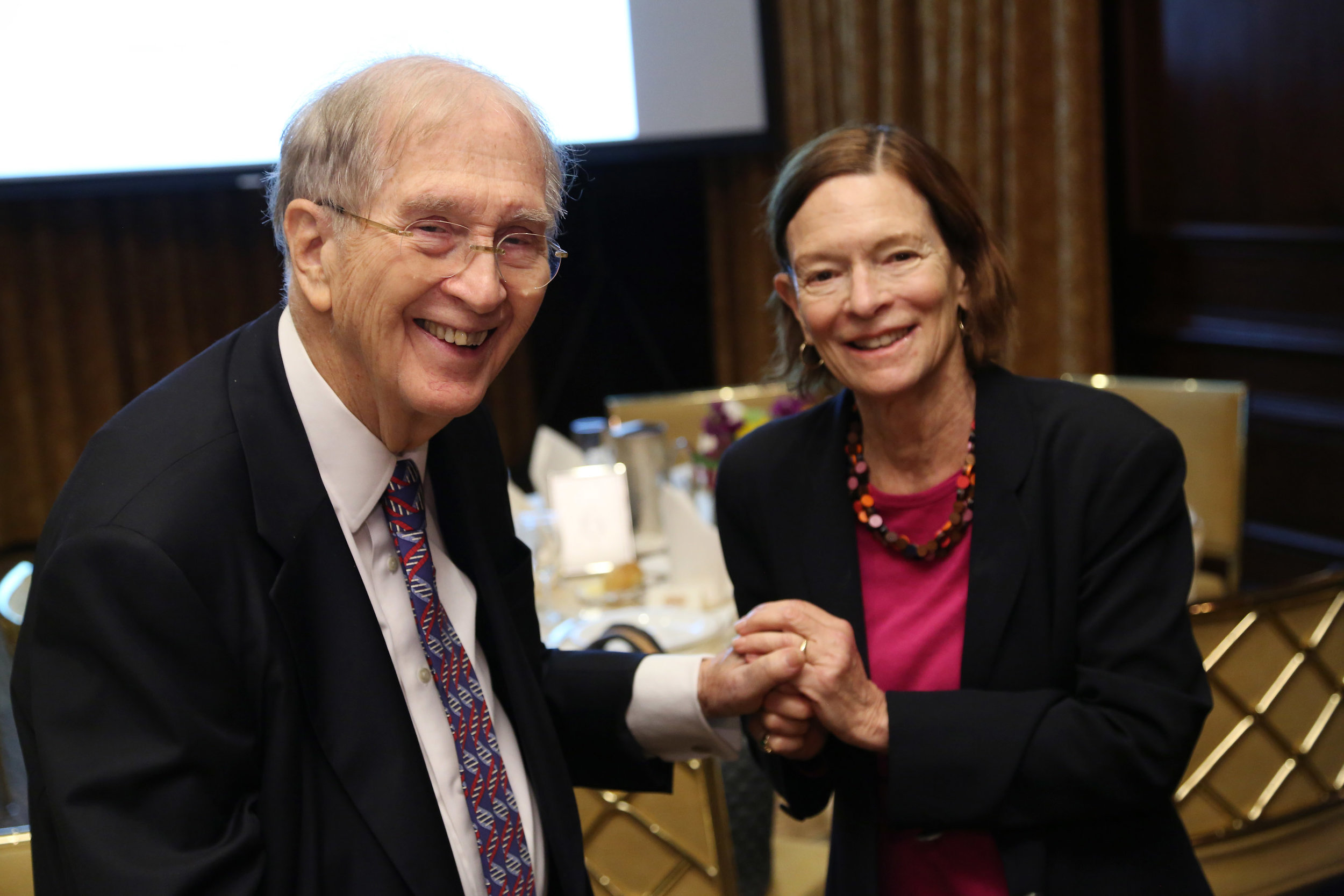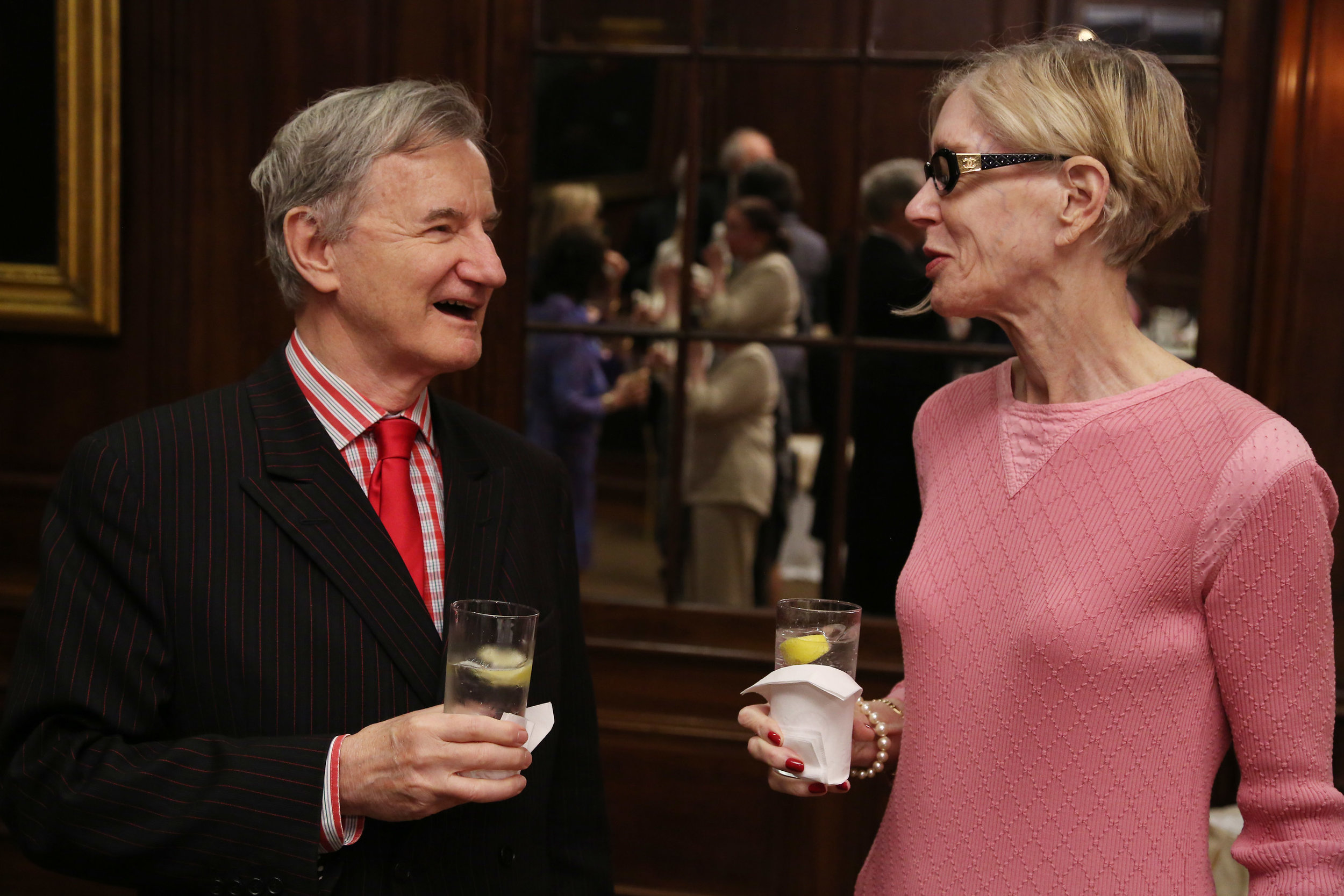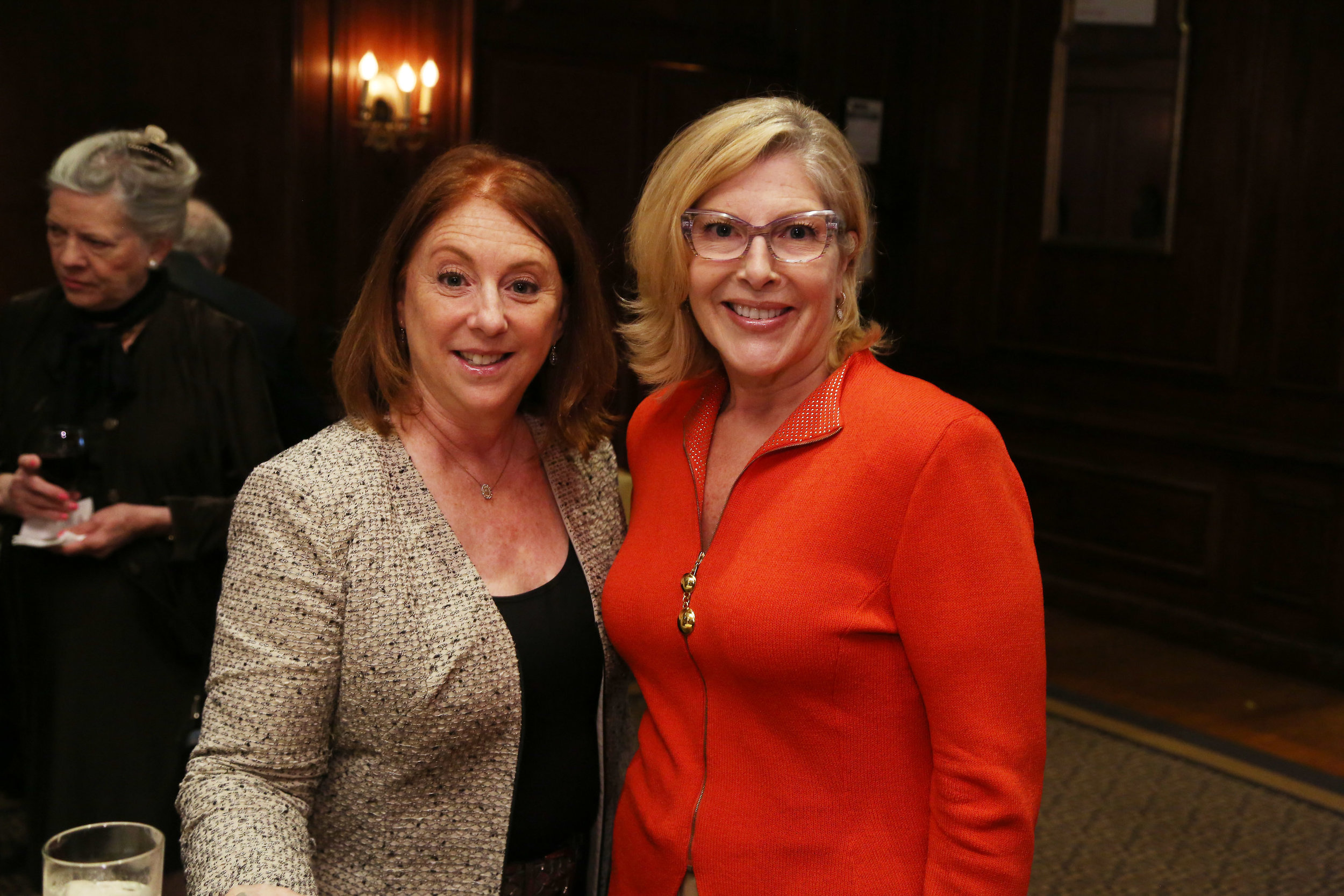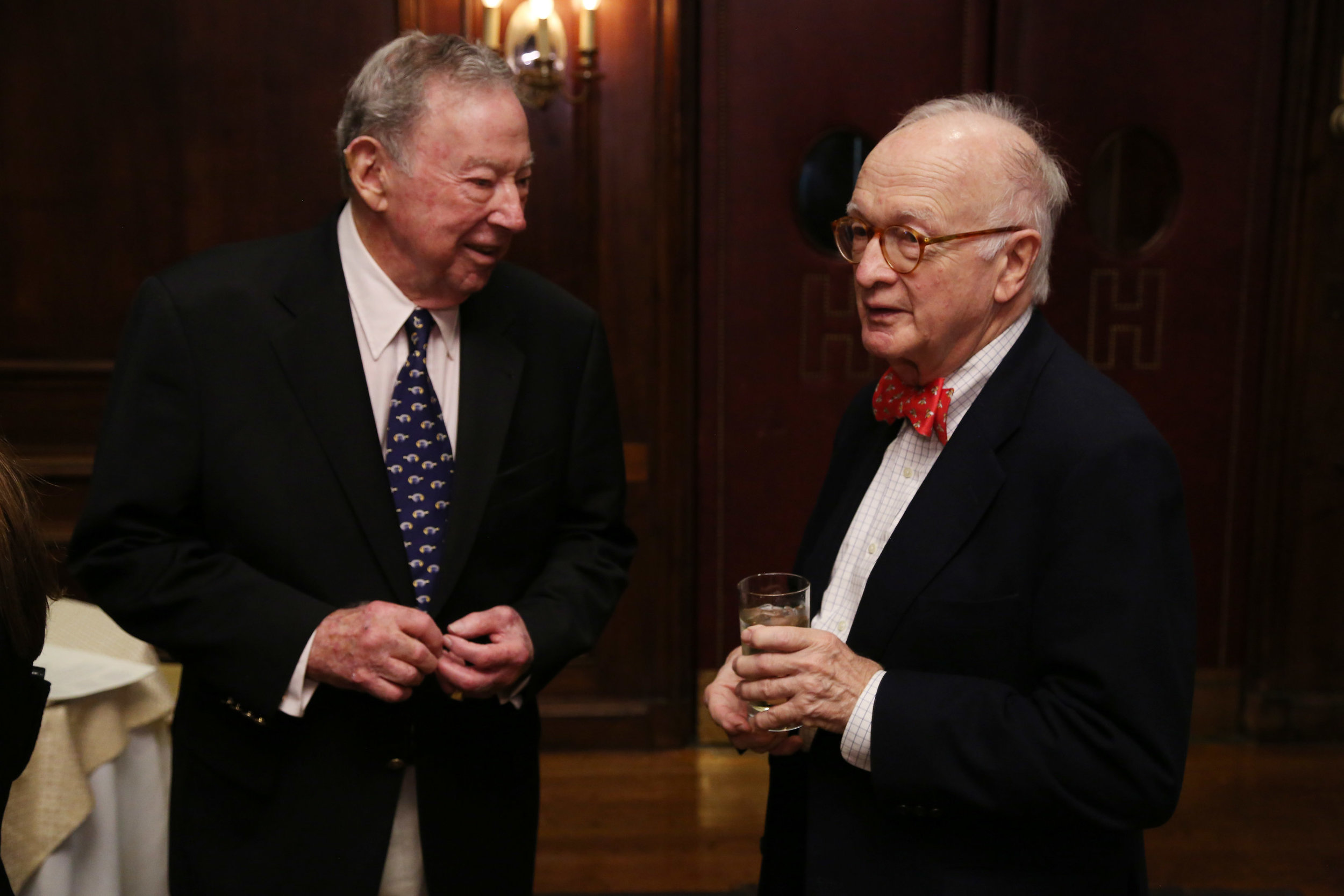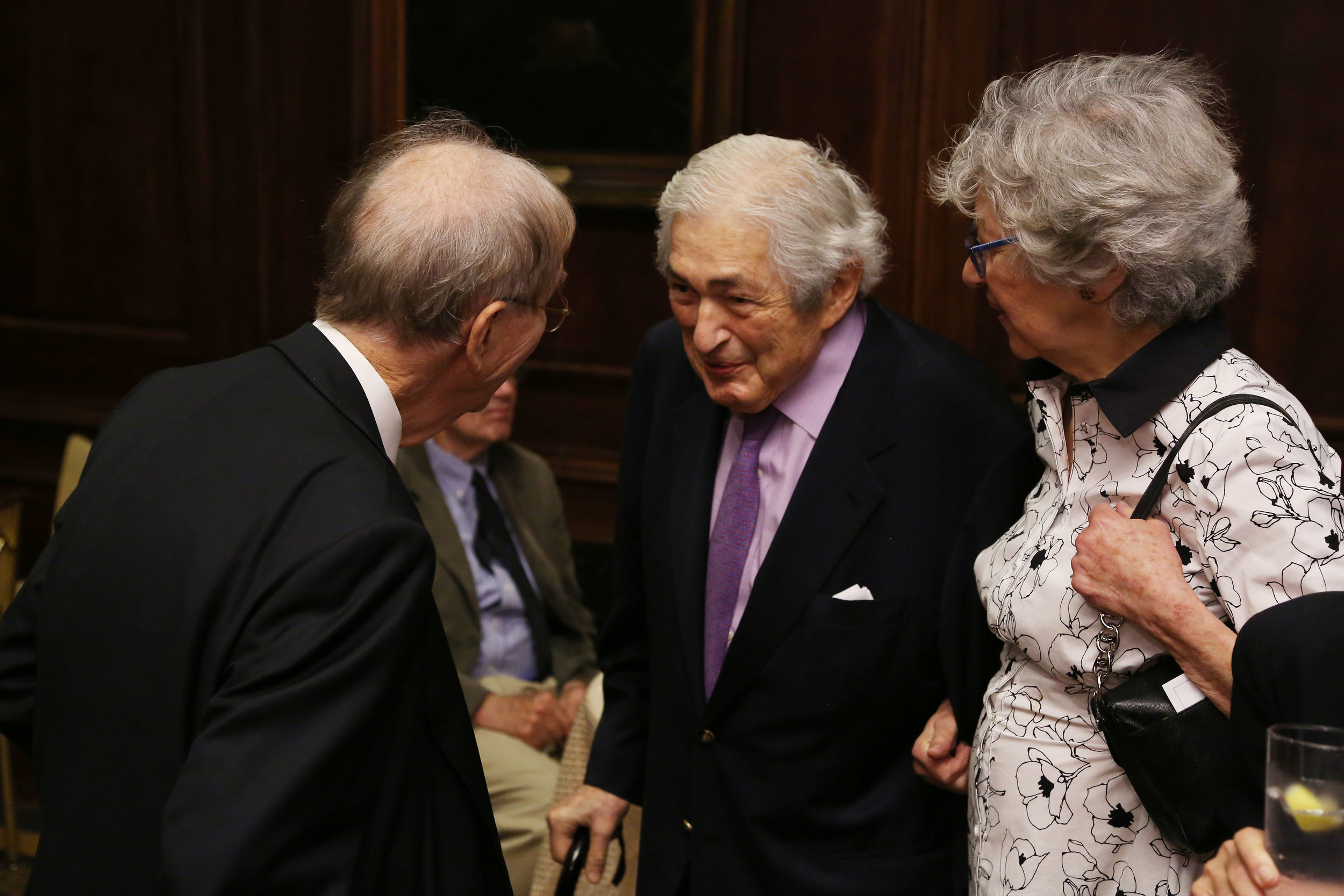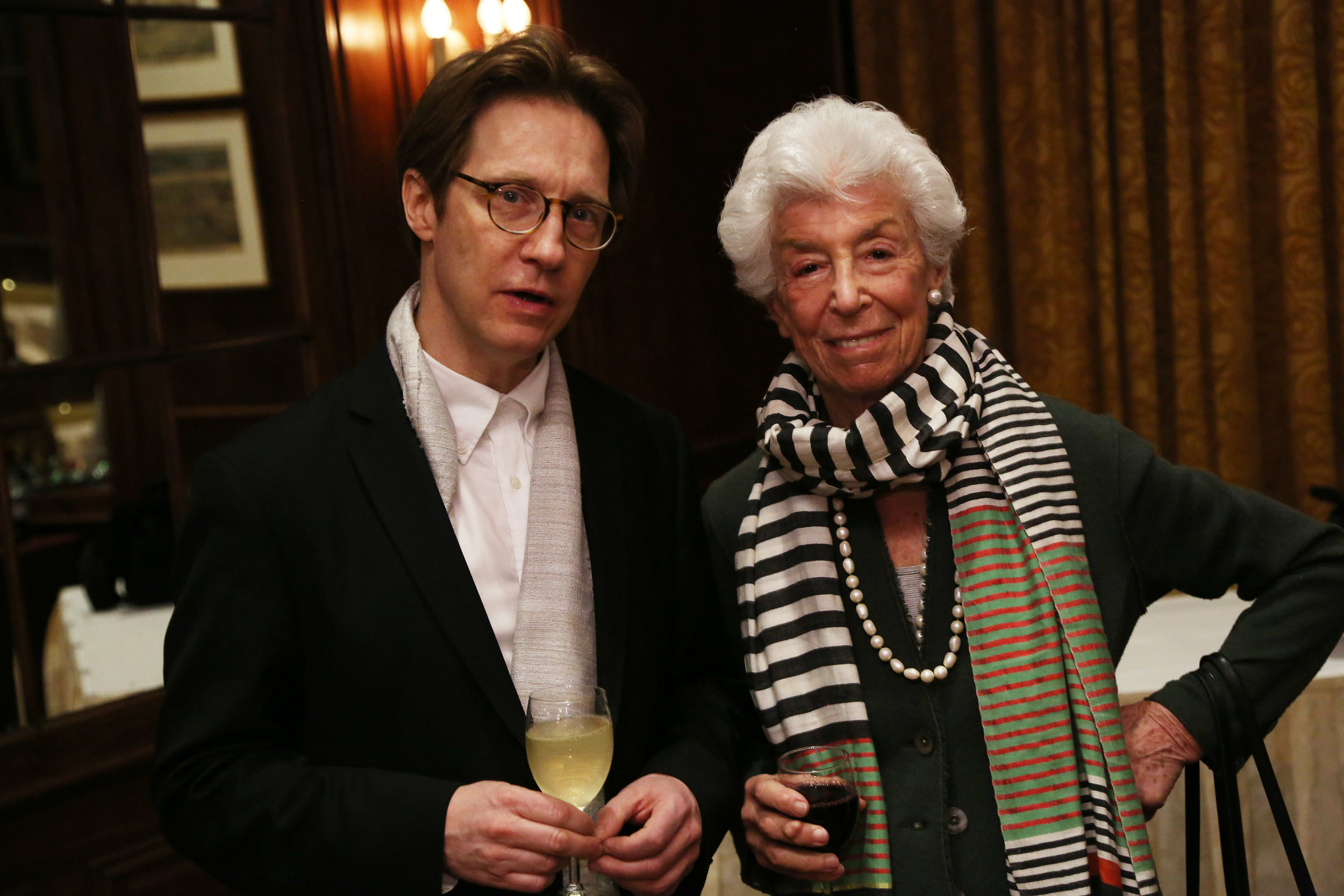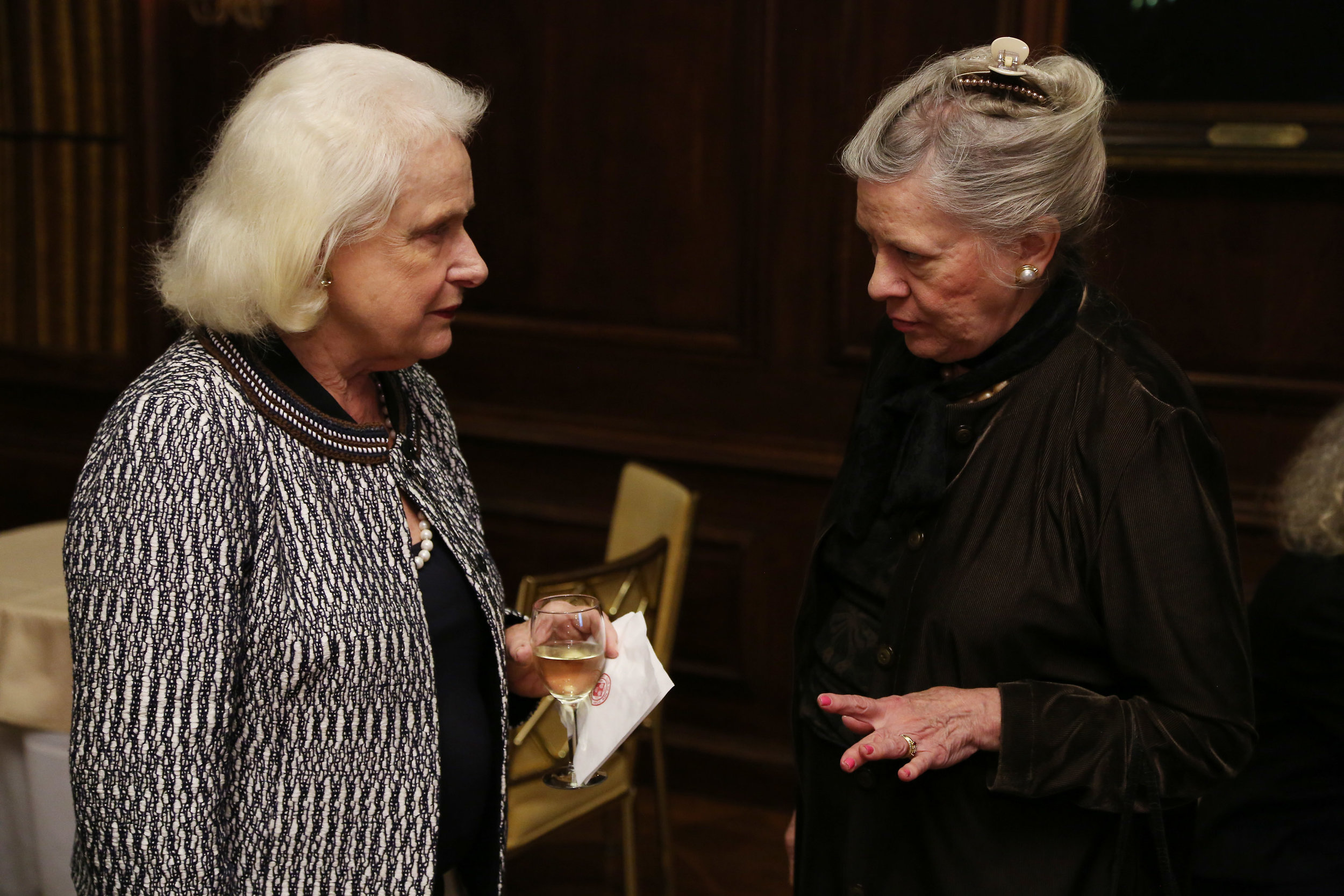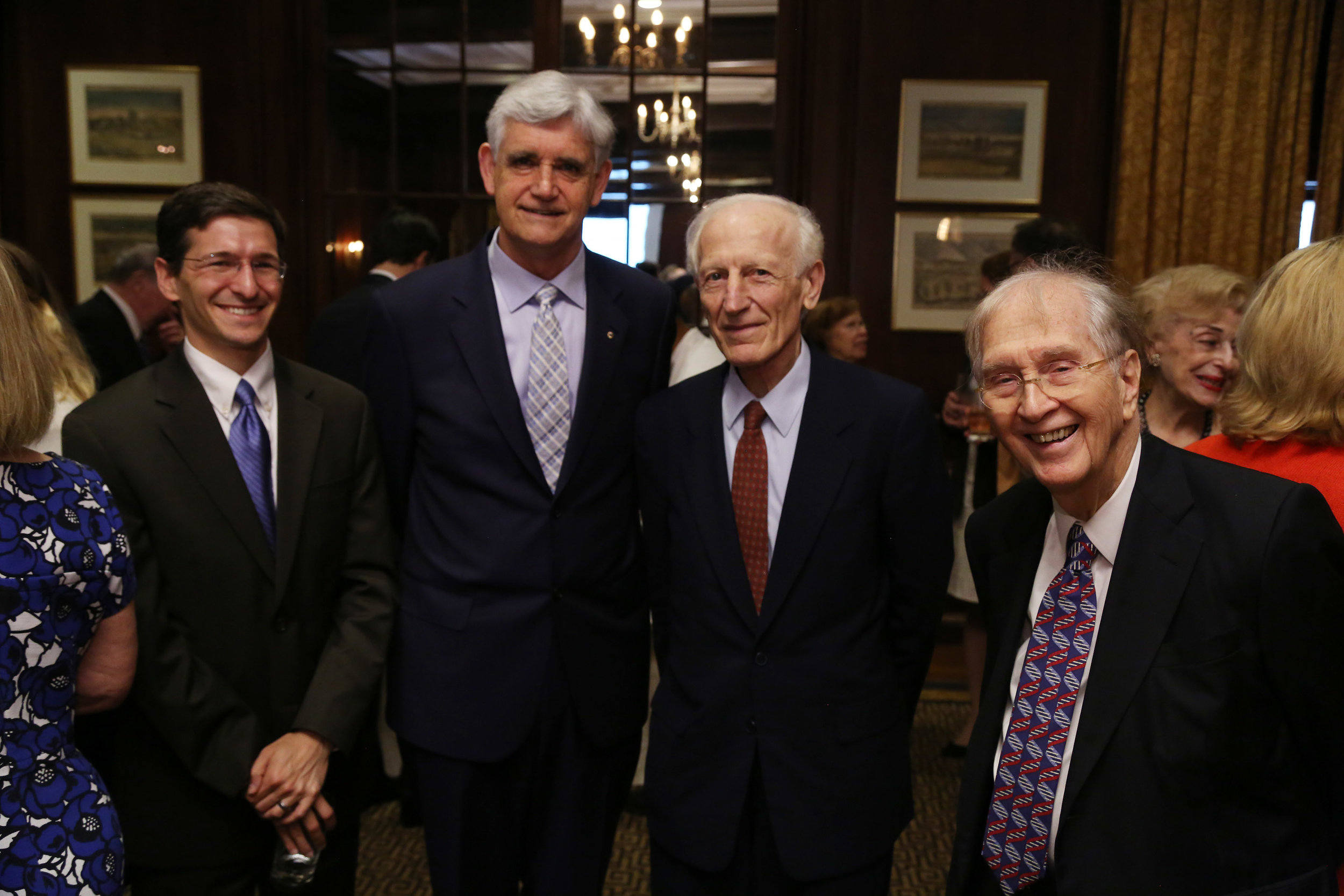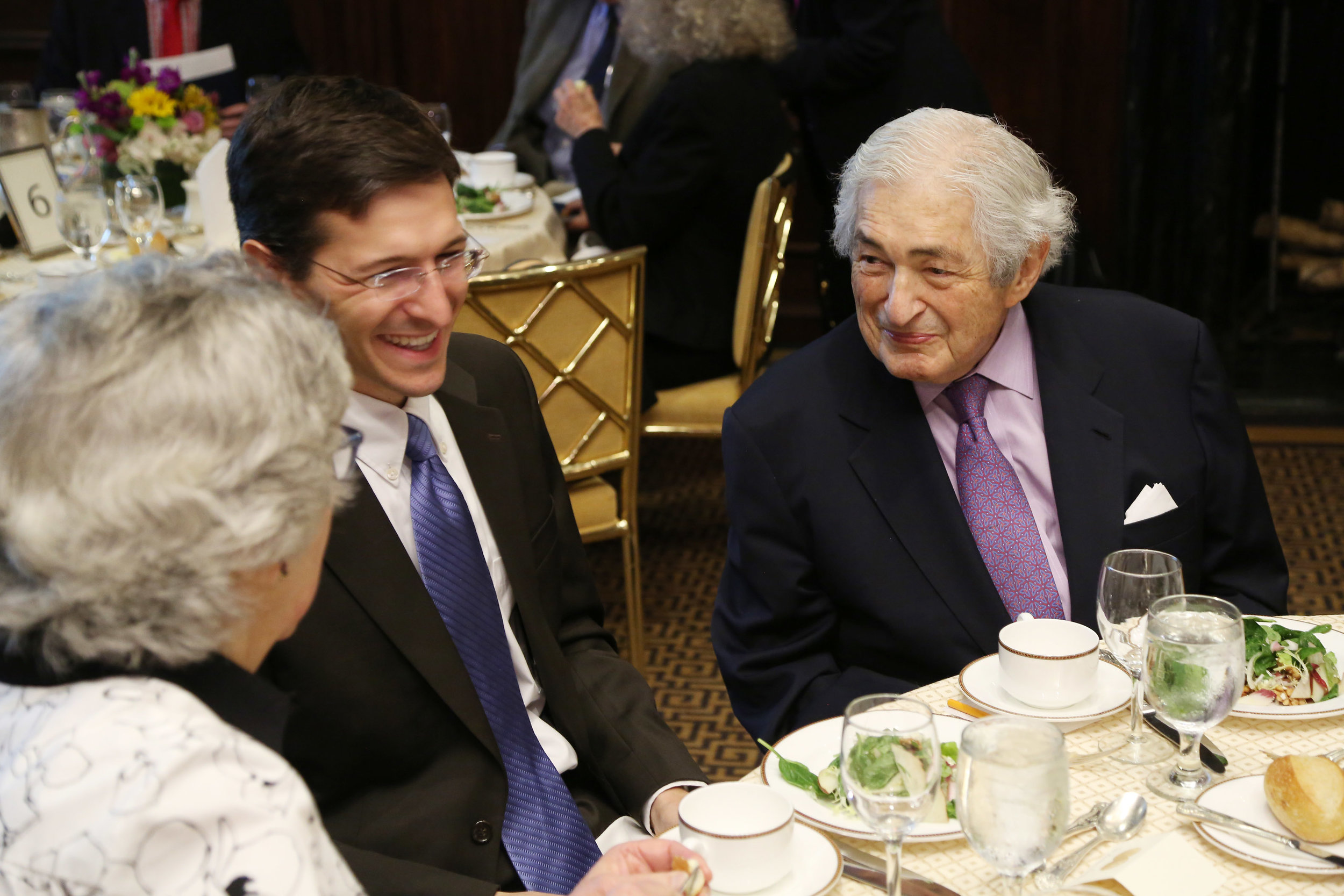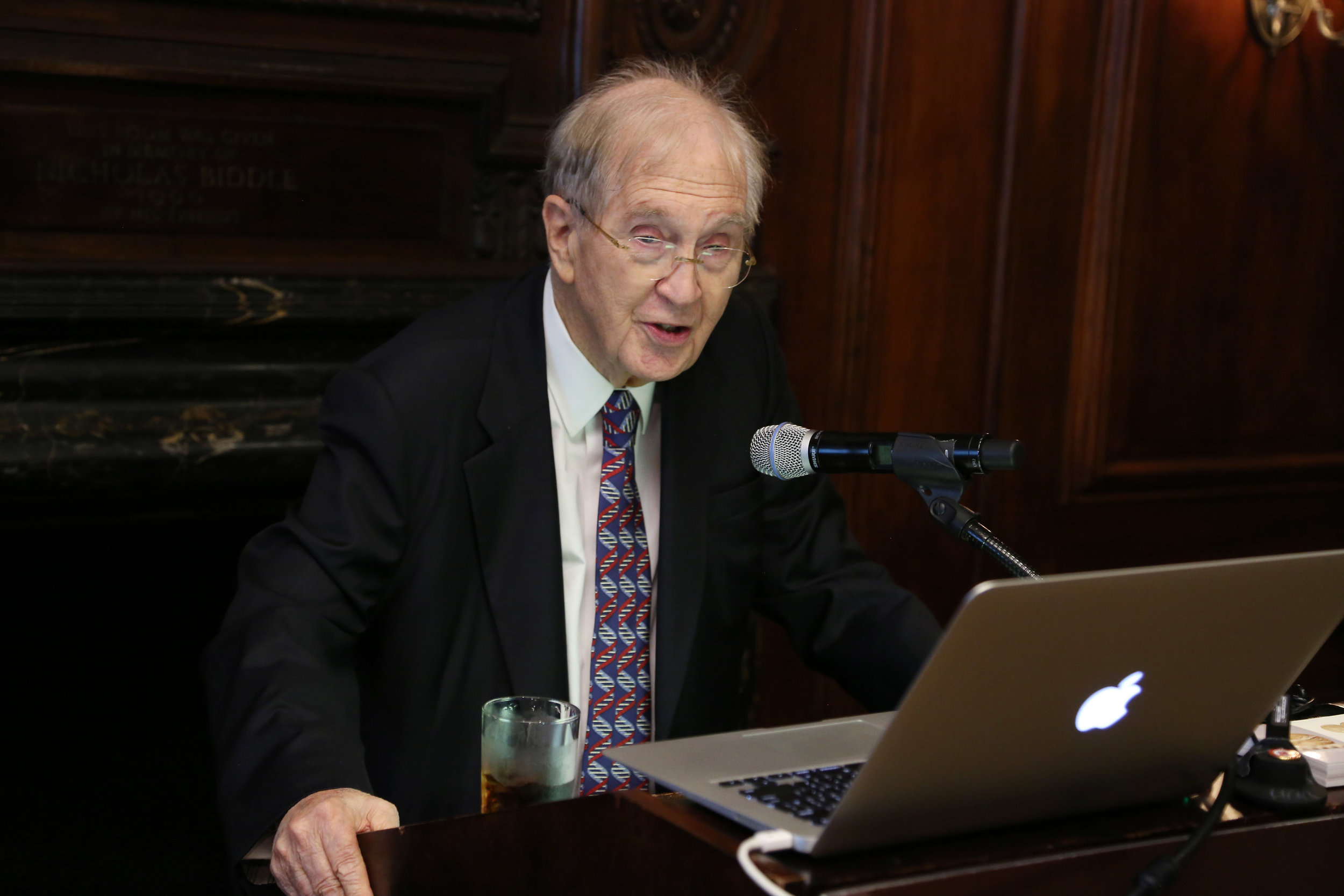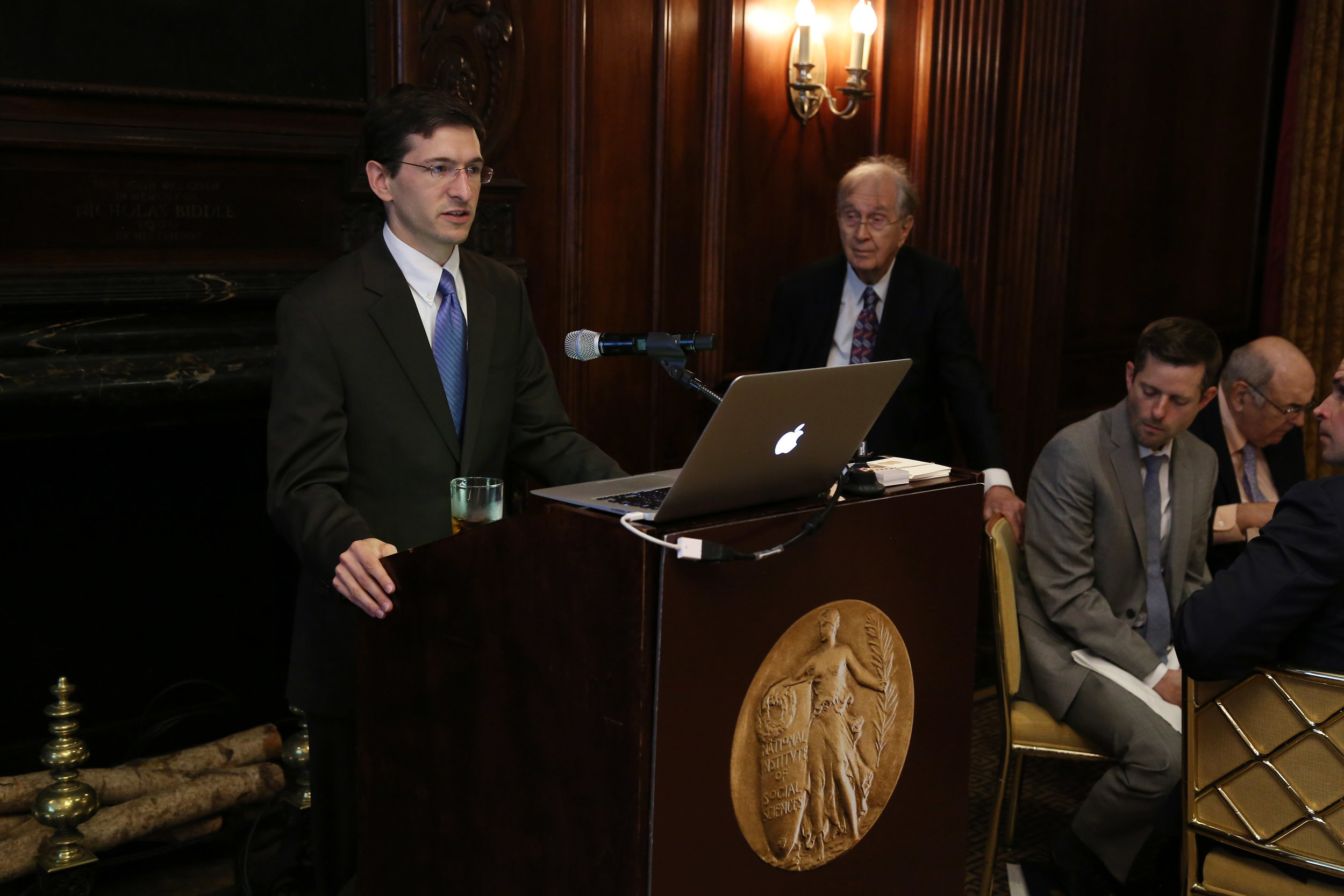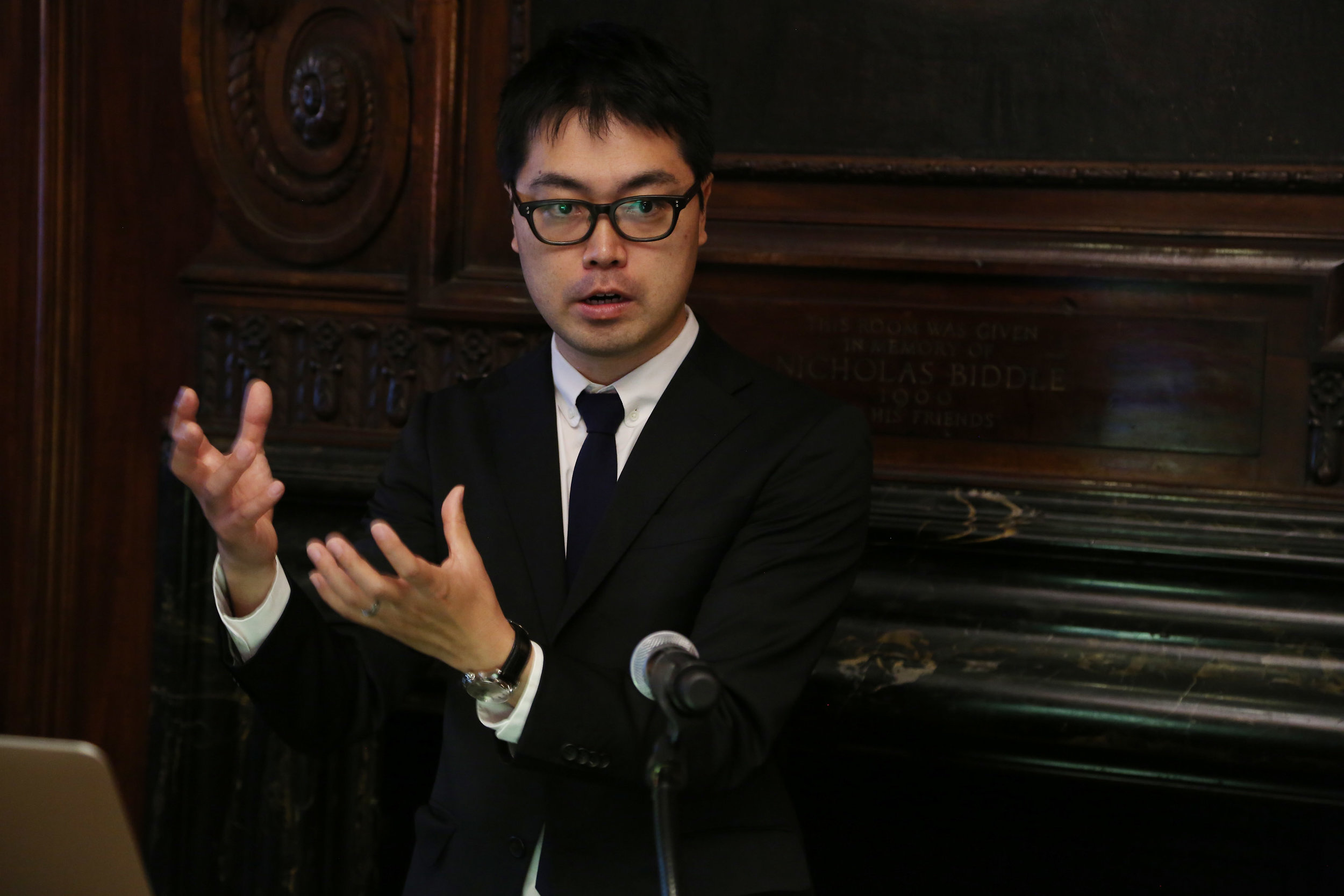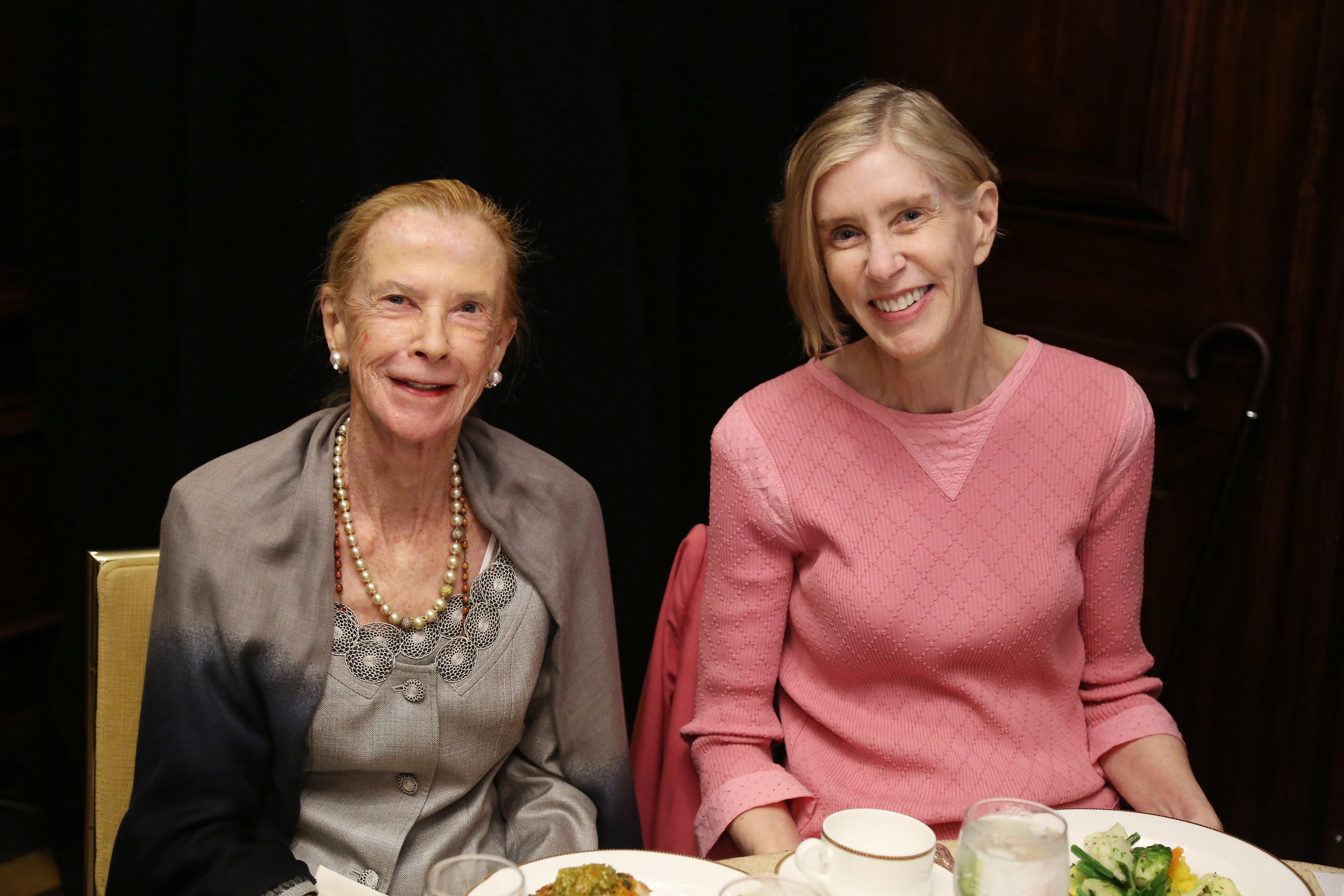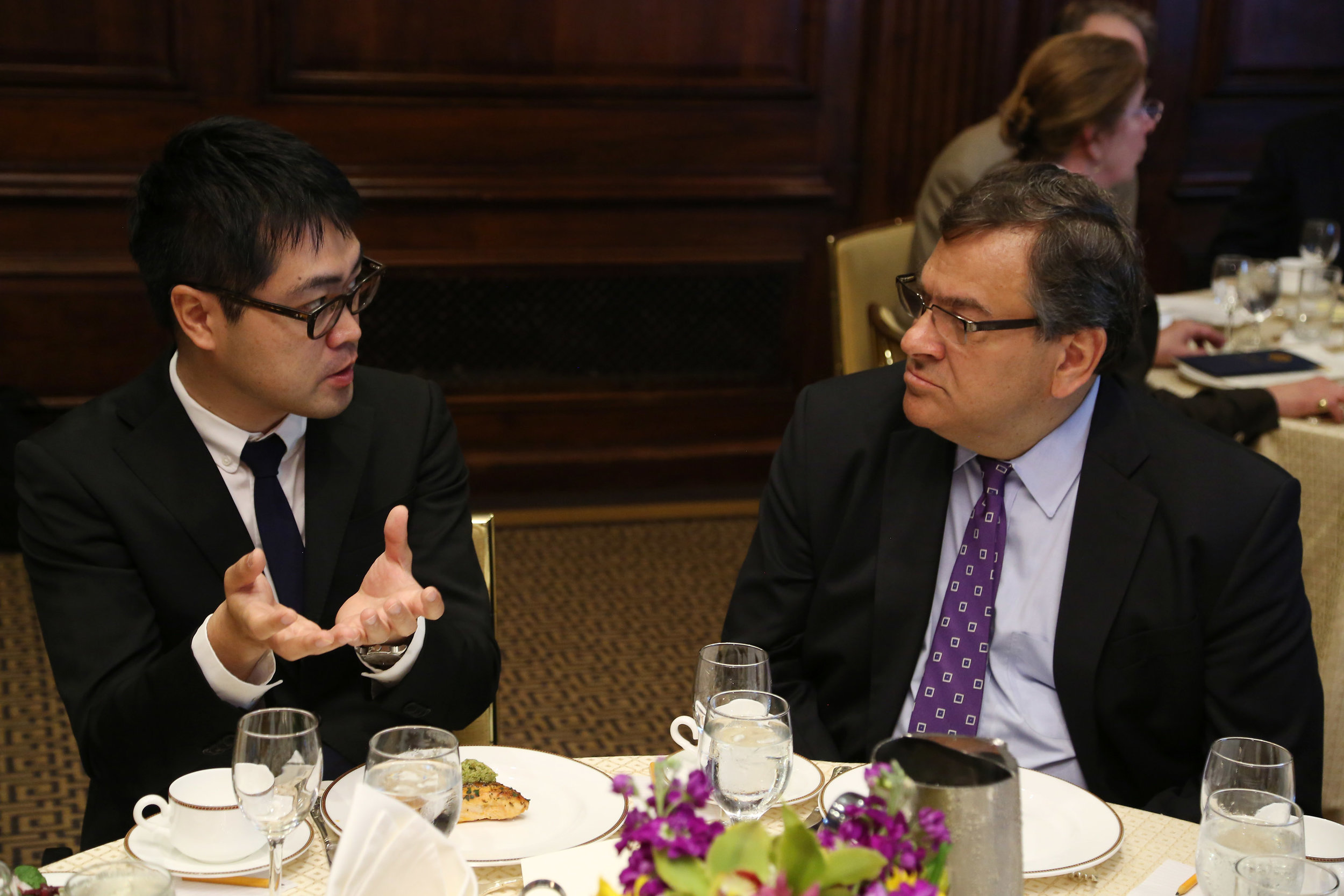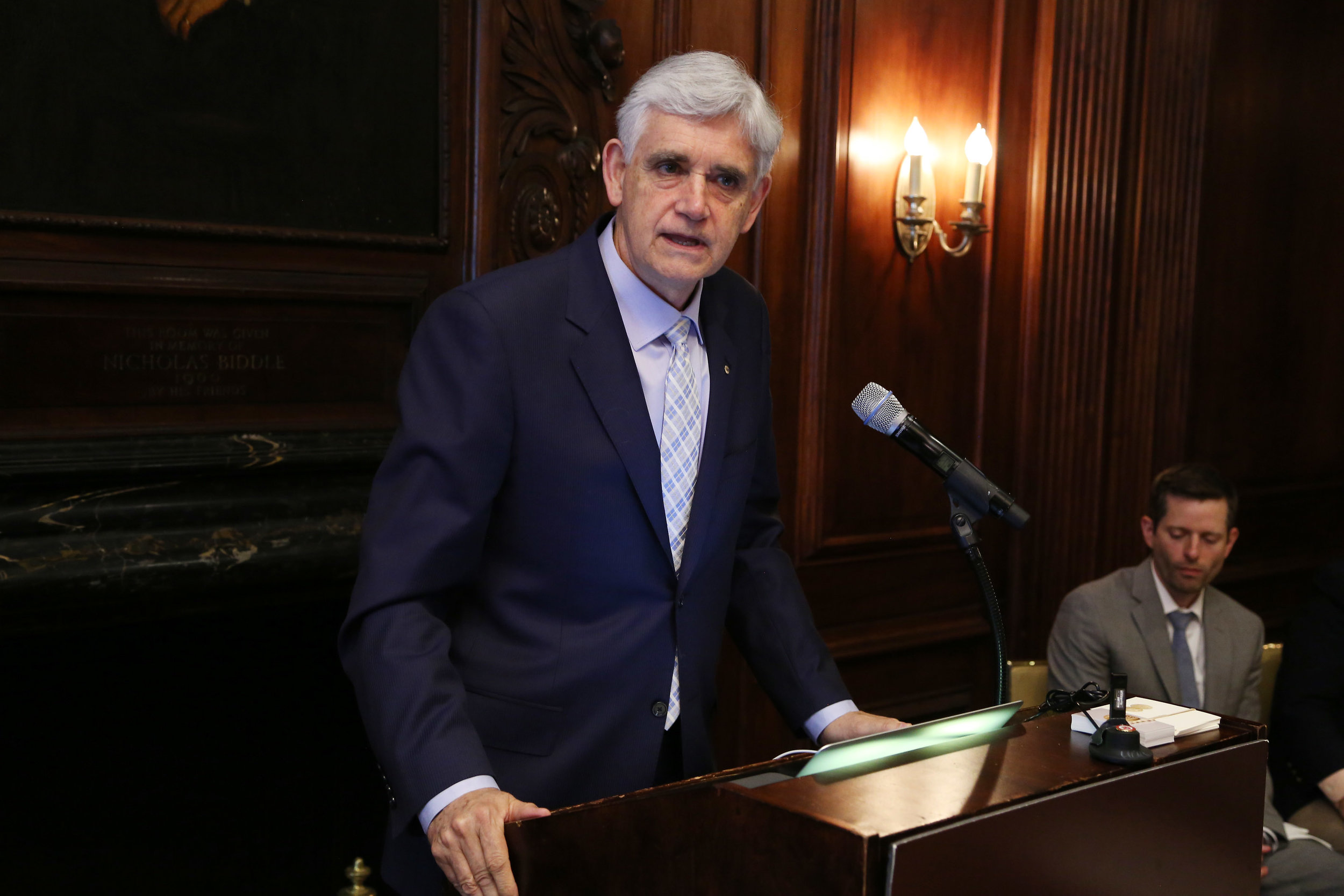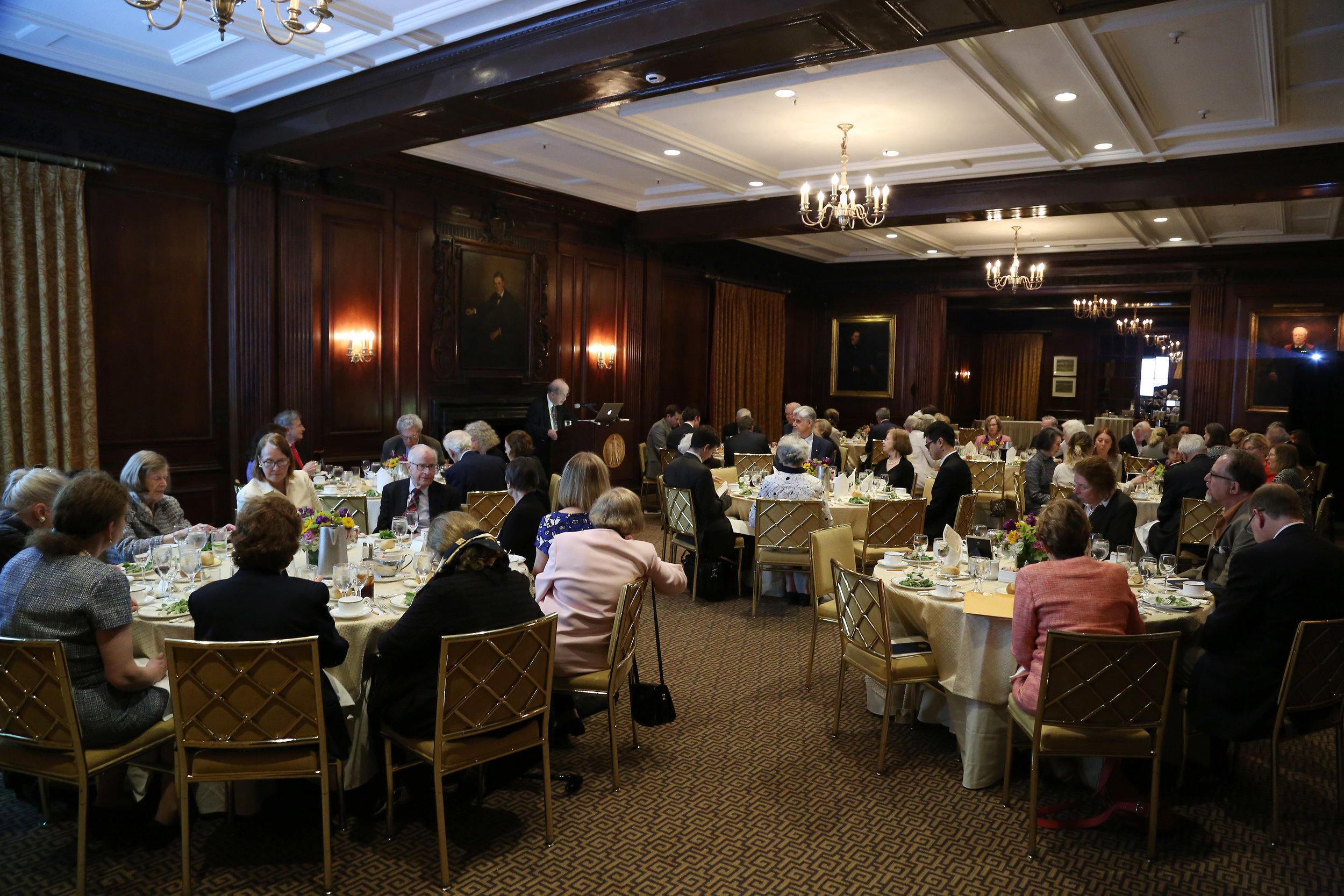Dr. Bruce Stillman at the Issues Discussion Luncheon (Credit: Michael Dames/National Institute of Social Sciences)
The National Institute of Social Sciences, one of the nation’s oldest honorary societies, welcomed 70 guests to its annual Issues Discussion Luncheon on Monday, June 5. The luncheon, which was held in midtown Manhattan, is the major event in the National Institute’s spring calendar.
Chauncey G. Olinger, Jr., the National Institute’s president, welcomed the guests, noting that this event marked the 26th year that the National Institute has held an issues discussion luncheon in New York City.
The luncheon program began with brief remarks from Dr. Zachary Cooper and Mr. Hirokazu Shirado, a previous and the current recipient of a National Institute’s Seed Grant. Dr. Cooper, who earned his doctorate at Princeton and is now a senior fellow at the Center for Strategic and International Studies in Washington, DC, noted that the Seed Grant was "hugely important in completing my work." Mr. Shirado, who is completing his degree in Yale's Sociology Department, credited his Seed Grant with "keeping my studies going."
CLICK ON ARROWS TO ADVANCE SLIDESHOW
The keynote speaker was Dr. Bruce Stillman, the president and chief executive officer of the Cold Spring Harbor Laboratory, who discussed the rise of gene-editing techniques and their implications for the modern world.
"We are in the middle of a scientific revolution," Dr. Stillman said.
Through artificial selection, "humans have been intervening in the way species look for a long, long time.” But the development of new gene-editing techniques, including CRISPR-Cas9, has raised new possibilities and questions. "Secondary effects are now the reason people are hesitant about gene editing," he said.
This explosion of new knowledge means that scientific literacy is more important than ever. Yet, Dr. Stillman worried that science faced new threats in today’s political environment. “Scientific education in some parts of the country is being suppressed,” he said.
About the National Institute of Social Sciences
Established in 1912, the National Institute of Social Sciences (www.socialsciencesinstitute.org) is an honorary society of Americans dedicated by service and philanthropy to the public good and to honoring those who have achieved at the highest level. Since its founding, the National Institute has presented its Gold Honor Medals to distinguished Americans, established a vibrant chapter in Palm Beach, Florida, and made grants to graduate students in the social sciences.


